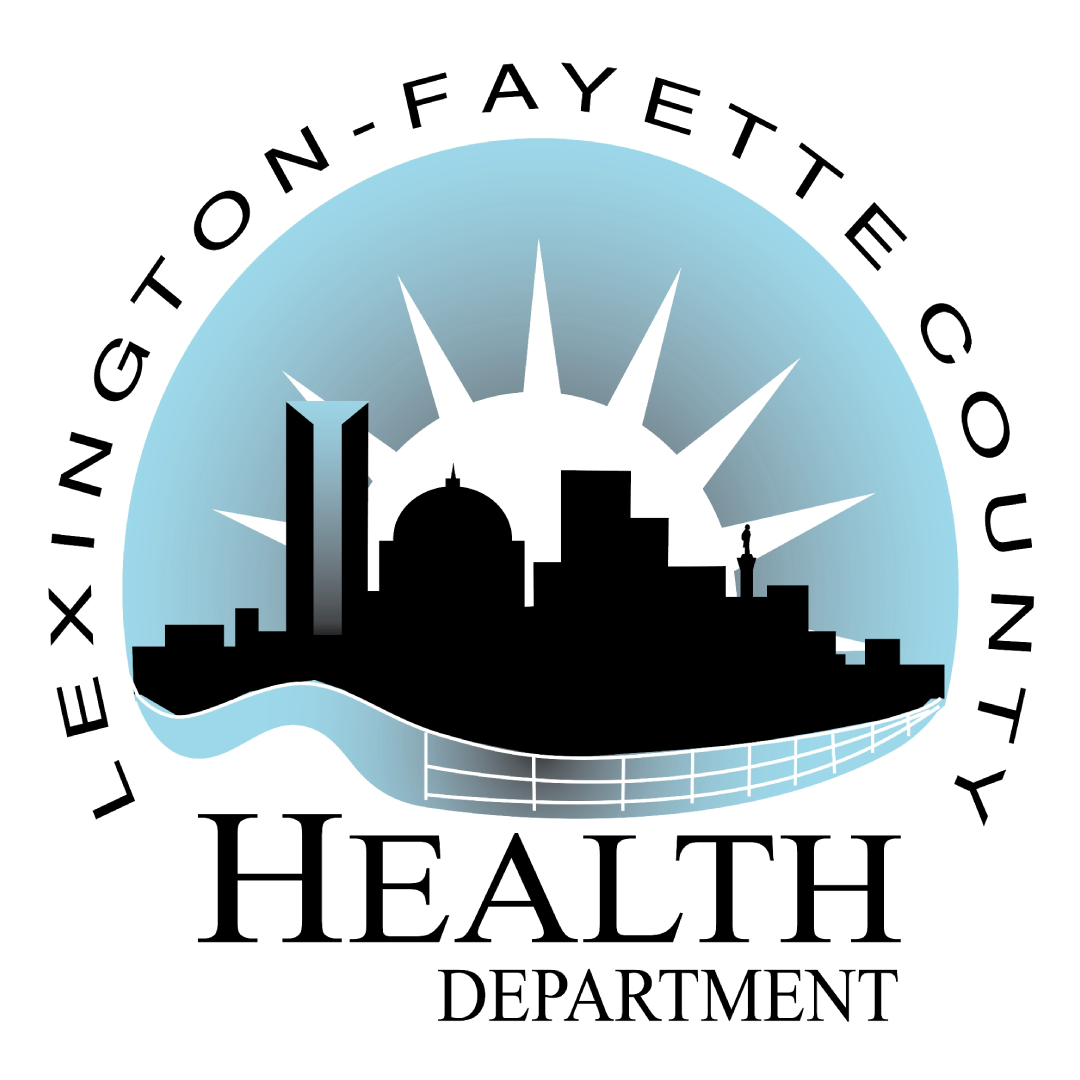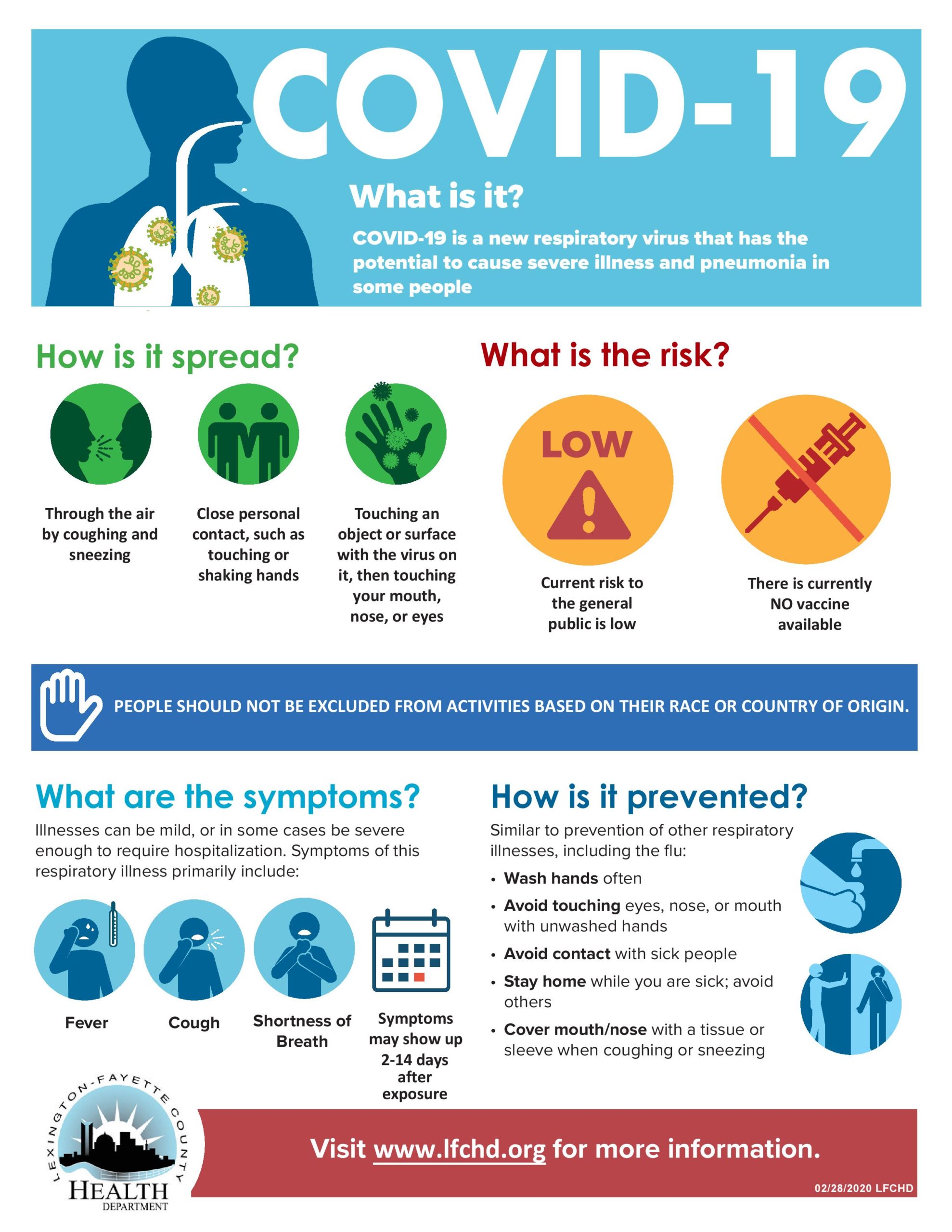MARCH 12, 2020: Mayor Linda Gorton and Commissioner of Health Kraig Humbaugh are recommending that beginning Friday, March 13, organizers consider postponing or canceling all public, in-person events as part of the region’s COVID-19 response.
“Although this will be painful for some groups, we know we must do everything we can to protect the lives of our citizens,” Gorton said.
COVID-19 is thought to be primarily spread through close contact with those who are infected, so transmission is possible within gatherings. Limiting physical contact with others can help reduce the spread of the disease, protecting those at highest risk of severe illness, such as seniors, and those with chronic diseases. When possible, organizers should consider alternate options to in-person gatherings for accomplishing the goals of their event, such as using technology as way for people to participate.
“Several events have already been canceled around town. The Kentucky High School Athletic Association has canceled the boys’ and girls’ Sweet 16 tournaments; the University of Kentucky and Transylvania University have switched to on-line instruction; and people are avoiding large public gatherings,” Gorton said. “Thank you to all of our citizens. You are doing a great job following the precautions we have outlined. That will make all the difference in getting us past this.”
- Factors event
organizers should consider when deciding to hold an event:
- The age and health status of attendees. People over 60 years of age or those with chronic medical conditions have been advised to avoid public gatherings;
- The ability to implement regular environmental cleaning measures for high-touch areas during event;
- The ability to provide opportunities for good handwashing and availability of alcohol-based hand sanitizer, in lieu of handwashing;
- The capability for attendees to practice social distancing (remain 6 feet away from each other). Crowd density and indoor gatherings in small spaces could impact the ability of attendees to space themselves;
- The ability to potentially screen participants for fever or symptoms of illness. Those with either should be advised not to attend;
- The length of the event. The longer the event’s duration, the greater the risk of potential exposure;
- The ability to manage the needs of people who may become ill and the ability to track or recall attendees if an attendee is identified as having COVID-19.
- If an in-person
gathering is held, the following prevention measures are recommended for
individuals to reduce the transmission of COVID-19:
- Stay home when you are sick;
- Avoid close contact with people who are sick with fever, coughing, sneezing, and difficulty breathing. To avoid close contact, stay at least 6 feet away from others;
- Avoid touching your eyes, nose and mouth;
- Cover your cough or sneeze with a tissue, then throw the tissue in the trash. To avoid coughing into your hands, you can cough into your elbow.
- Clean and disinfect frequently touched objects and surfaces using a regular household cleaning spray or wipe.
- Wash your hands often with soap and water for “at least 20 seconds,” especially after going to the bathroom, before eating and after blowing your nose, coughing, or sneezing.
- If soap and water are not readily available, use an alcohol-based hand sanitizer with at least 60% alcohol. Always wash hands with soap and water if hands are visibly dirty.
- Thefollowing
are action strategies for postponing or canceling events:
- Immediately alert event staff and participants if the event(s) has been postponed or canceled and inform them of emergency refund policy and re-ticketing option, if available.
- Inform everyone about when events may occur if postponed. Let event participants know whether new tickets can be obtained and when.
To help answer the community’s questions about COVID-19, the Lexington-Fayette County Health Department is operating a call center for members of the public. Questions can be asked by calling (859) 899-2222 during regular business hours or emailing COVID19@lfchd.org. Additional information, including frequently asked questions, can be found at lfchd.org and on the LFCHD social media accounts. Find us on Facebook at www.facebook.com/LFCHD, or follow us on Twitter at www.twitter.com/LFCHD and Instagram at @lexpublichealth.

